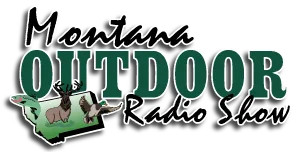BILLINGS – A grizzly bear was recently observed in the Pryor Mountains. State wildlife officials confirmed the species of the observed bear from a photograph taken of the animal. Though sightings of potential grizzly bears in the Pryor Mountains have been reported in recent years, this is the first confirmed sighting.
Historically, grizzly bears occupied most of Montana, including the Pryor Mountains, but likely have not inhabited these mountains since the late 1800s. Grizzly bears are federally protected under the Endangered Species Act in all lower 48 states. There is a healthy population of black bears in the Pryor Mountains.
Wildlife officials contacted area landowners to alert them to the observation and provide them with information on bear conflict prevention. Game cameras were installed in the area. Officials searched for additional bear sign, specifically hair for DNA testing to determine the grizzly bear’s origin.
Anyone recreating in the Pryor Mountains should follow these bear safety protocols:
- Carry bear spray and know how to use it.
- Stay alert and look for bear sign, especially where visibility is limited.
- Common bear sign to look for includes: tracks, scat, diggings, torn up logs, carcasses, daybeds and overturned rocks.
- Avoid traveling at dawn, dusk, or night when bears are typically most active.
- Make human-associated noises, such as shouting and talking, to alert bears of your presence.
- Travel in groups and keep members together.
- Never store food or other scented items in tents while camping.
- Avoid animal carcass sites.
Landowners in the Pryor Mountains should follow these bear safety protocols to avoid potential conflicts and attracting bears:
- Store garbage in certified bear-resistant bins or in secured buildings until the day of disposal.
- Protect livestock, such as goats and chickens, with an electric fence.
- Remove potential attractants or store in a secured building.
- Common attractants include: pet and livestock feed, barbeque grills, bird feeders, fruit from fruit-bearing trees, compost.
For more information on bear safety, visit:
https://fwp.mt.gov/
For any bear conflicts or concerns, contact Daniel McHugh at dmchugh@mt.gov or 406-850-1131.




